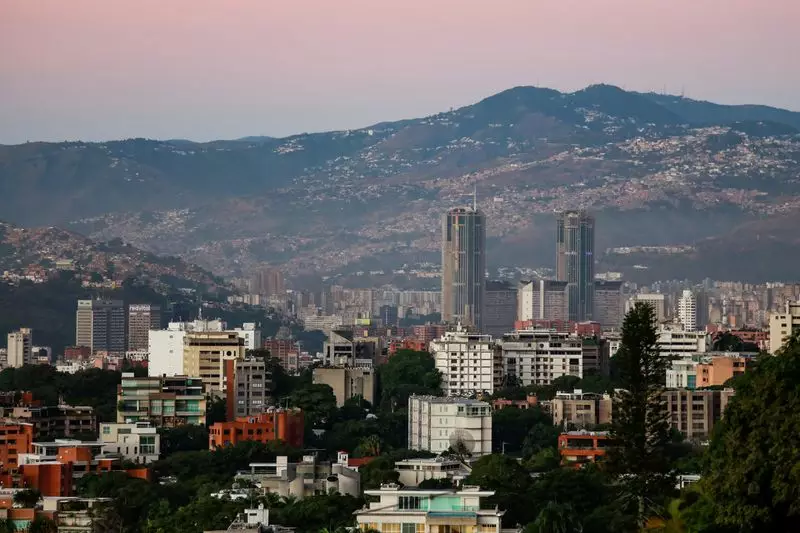The political landscape in Venezuela remains fraught with tension, particularly in light of the recent actions by the United States government. On an eventful Friday, the U.S. imposed sanctions against eight Venezuelan officials and significantly increased the bounty on President Nicolas Maduro’s head from $15 million to $25 million. This latest round of sanctions surfaced on the very day of Maduro’s inauguration for a third term, following a highly contentious presidential election. The Biden administration, as one of its concluding acts, signals continued disapproval of Maduro’s regime and its handling of Venezuela’s battered political and economic scene.
The sanctions follow the July 2022 election, where both the ruling Socialist Party and the opposition allege they have emerged victorious. This paradoxical situation reflects a broader pattern of disputes surrounding democratic processes in Venezuela. Among the newly sanctioned officials are Hector Obregon, the head of state oil company PDVSA, and Ramon Velasquez, the transportation minister, reflecting a laser focus on individuals who play critical roles in Venezuela’s economy. The sanctions were not solely a U.S. initiative; Canada, the United Kingdom, and the European Union also imposed similar measures targeting various Venezuelan officials, particularly those affiliated with the electoral process.
The U.S. Stance and Solidarity with the Venezuelan People
Bradley Smith, the Acting Under Secretary of the Treasury, articulated a clear message from Washington, emphasizing a stance of solidarity with the Venezuelan populace’s desire for new leadership. The rhetoric underscores an ongoing belief that Maduro’s government continues to engage in oppressive governance tactics, hindering democratic ideals. This bolstering of sanctions serves as a method of both pressure and expression of support for the opposition, which has often struggled against the current regime.
Responses from the Maduro Government
In stark contrast, Maduro and his allies have openly contested the validity of the sanctions. During his inauguration, Maduro dismissed the sanctions as attempts to retaliate against Venezuela, framing them as part of a broader “economic war” aimed at destabilizing the nation. Such sentiments articulate a narrative of resilience, as figures in Maduro’s government frequently cite external pressures as contributing factors to Venezuela’s socio-economic malaise. This narrative is utilized to garner domestic support and to deflect responsibility away from the government, portraying opposition members as agents of chaos.
The current political strife in Venezuela is underpinned by a disputed electoral outcome. The nation’s electoral authorities maintain that Maduro emerged victorious, yet there is substantial skepticism internationally regarding the legitimacy of this assertion. The opposition claims a decisive victory for their candidate, Edmundo Gonzalez, and presents ad-hoc tallies as evidence of electoral fraud. Support from international observers and governments has shifted towards recognizing Gonzalez as the legitimate leader, complicating Maduro’s claim to power further.
Historical Context of U.S.-Venezuelan Relations
Since assuming power in 2013, Maduro’s administration has faced increasing international scrutiny and pressure from the United States. Historically, each successive U.S. administration has adopted different approaches toward Venezuela, oscillating between direct sanctions and attempts at negotiation. Joe Biden’s administration briefly eased certain Trump-era sanctions, only to restore them amidst Maduro’s failure to deliver on electoral promises. Under Donald Trump’s earlier tenure, a “maximum pressure” campaign sought to cripple Venezuela’s oil sector and governing structures, positioning U.S. foreign policy in stark opposition to Maduro’s administration.
Future Implications and Political Calculations
As Donald Trump prepares to take the reins once again, much remains uncertain regarding U.S. policy toward Venezuela. Notably, immigration concerns loom large in domestic discourse, intertwining with foreign policy dilemmas. Trump’s previous commitment to mass deportations likely necessitates some cooperation from Venezuelan authorities, further complicating the diplomatic landscape. In light of these complexities, any future response from the Trump administration regarding Venezuela could be pivotal, not only for domestic voters but also for international observers watching the unfolding situation closely.
The political upheaval in Venezuela is characterized by contested narratives, international sanctions, and a government that defies external pressure. The decisions made by both the U.S. and Venezuelan actors will play significant roles in determining the trajectory of Venezuela’s future. As the nation contemplates its next steps, the thorny interplay between domestic governance and international relations shapes the reality for the Venezuelan people, whose aspirations for better leadership continue to collide with the harsh realities of power struggles and economic hardship. The road ahead is fraught with uncertainty, yet remains pivotal for the future of Venezuela and its international standing.

